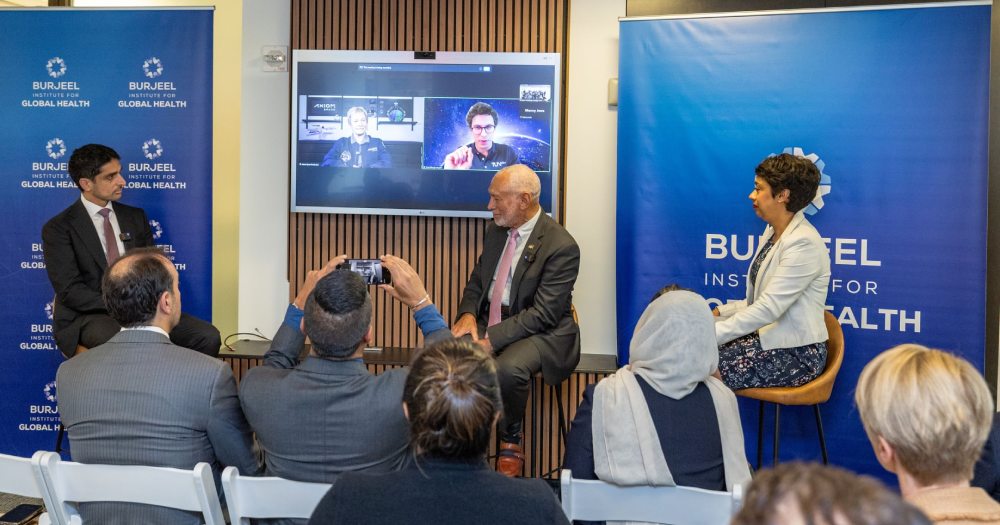UAE-led research suggests we may soon see astronauts with diabetes

Space just got a little more inclusive. Burjeel Holdings, teaming up with Axiom Space, has cracked open the door for astronauts with diabetes. Their "Suite Ride" study, conducted aboard the International Space Station (ISS) during Axiom Mission 4, demonstrated that common diabetes tools — the same ones used daily by millions on Earth — function flawlessly in orbit. This is more than a scientific breakthrough; it's a message that space is no longer just for the perfectly healthy elite.
At a celebratory event at the Burjeel Institute for Global Health in New York, Burjeel Holdings took a significant step forward by announcing its ambition to send the first astronaut with diabetes into space. As Dr. Mohammad Fityan, Chief Medical Officer at Burjeel Medical City, put it: "Besides opening the door for astronauts with diabetes, these findings will also transform the way we deliver care here on Earth."
How does it work?
The Suite Ride initiative wasn't just a lab experiment — it was a real-world trial, 250 miles above Earth. A four-member crew lived and worked for 18 days in microgravity, testing everyday diabetes management tools to their limits.
Here's what they sent into orbit:
- Continuous Glucose Monitors (CGMs): These wearable devices tracked blood sugar levels in real time, even in microgravity, with accuracy comparable to Earth.
- Insulin pens: Flown and used on the ISS for the first time, proving reliable and safe in space conditions.
Even better, CGM data could be transmitted from space to Earth, allowing ground teams to monitor astronauts in real-time. This is remote care taken to the next level — literally.
Why does it matter?
Space travel has always been selective. Chronic conditions, such as diabetes, were automatic disqualifiers. But not anymore. This research suggests that people with diabetes can safely participate in long-duration missions — a significant step forward for space inclusion.
And the impact isn't limited to astronauts. "From 250 miles above Earth to 25 miles offshore on oil rigs, we are advancing new models of remote care," said Dr. Fityan. The same tools that kept astronauts safe can help doctors manage patients in remote or extreme environments here on Earth.
Sharaf, the UAE's Assistant Foreign Minister for Advanced Science and Technology, hit the nail on the head during the panel discussion: "Having more people going to space, and technologies like the one just tested in space, helps generate the variety of data needed to better inform science. The impact is huge."
The context
This isn't just a one-off science project — it's part of a bigger picture. The UAE has been steadily ramping up its space ambitions, from sending its first astronaut to the ISS to planning a Mars mission. Burjeel's research is a natural extension of that vision, combining space exploration with health innovation.
The Suite Ride mission marked several firsts:
- The first-ever continuous glucose monitoring aboard the ISS
- The first insulin pens in orbit
- The first validation of glucose monitoring across multiple methods in space
Taken together, these milestones move us toward a future where spaceflight is open to more of humanity, not just the perfectly healthy few. And they push healthcare innovation to places it's never been before — off the planet.
💡Did you know?
You can take your DHArab experience to the next level with our Premium Membership.👉 Click here to learn more
🛠️Featured tool
 Easy-Peasy
Easy-Peasy
An all-in-one AI tool offering the ability to build no-code AI Bots, create articles & social media posts, convert text into natural speech in 40+ languages, create and edit images, generate videos, and more.
👉 Click here to learn more


